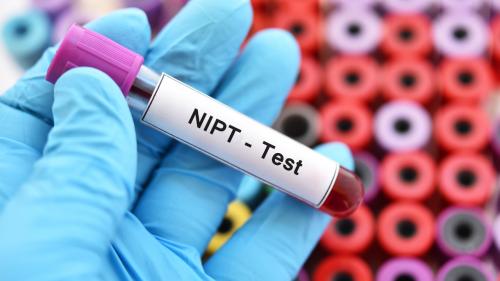Which Non-invasive Prenatal Test (NIPT) Is Best?

Recent years have witnessed
notable improvements in the field of prenatal testing, giving pregnant parents
a variety of alternatives to learn more about the health of their unborn child.
A valuable approach for identifying chromosomal abnormalities and other genetic
problems in the baby is the non-invasive
prenatal screening test (NIPT).
However, with so many non-invasive screening tests accessible in
the UK, the issue of which is better emerges. We'll examine the various
NIPT techniques in this article so you can choose the best one.
Understanding NIPT:
The non-invasive prenatal screening test, or NIPT, is a
cutting-edge medical screening method that enables medical professionals to
look at fetal DNA that is present in a pregnant woman's blood.
In addition to any possible chromosomal disorders like Down syndrome, Edwards
syndrome, or Patau syndrome, this DNA includes important information about the
developing embryo.
Common NIPT Methods:
1. Tests for cell-free DNA (cfDNA)-
The most commonly used NIPT
technique is cell-free DNA testing or cfDNA. It entails the examination of
fetal DNA fragments discovered in the mother's blood.
2. Harmony Test-
The Harmony Prenatal Test
in the UK is a particular brand of cfDNA-based NIPT that has become
well-known for its precision and capacity for early detection. It quickly turns
around its findings and checks for common chromosomal abnormalities.
3. Prenatal Verifiable Test-
Another NIPT alternative that
uses cfDNA and tests for common chromosomal disorders with excellent accuracy
is the Verifi Prenatal Test. It is renowned for its capacity to identify specific
microdeletions and abnormalities in the sex chromosomes.
4. NIFTY (Non-Invasive Fetal Trisomy Test)-
In some areas, the NIFTY test is
a well-liked cfDNA-based NIPT alternative. It is appropriate for high-risk
pregnancies and allows early and precise diagnosis of common chromosomal
abnormalities.
Choosing the Best NIPT:
Choosing the optimal NIPT for
your pregnancy requires taking into account several criteria.
• Accuracy:
The majority of cfDNA-based NIPT
techniques have good accuracy rates; however, it's important to check the
performance metrics for each individual test. Talk to your healthcare
practitioner about these.
• Early Recognition:
There is greater time for
planning and decision-making when data from some NIPT techniques is available
as early as 10 weeks into pregnancy.
• Cost:
It's critical to comprehend the
financial element and whether your insurance will cover the test because the
cost of NIPT might vary.
• Genetic Disorders:
Find out if the NIPT procedure
you are thinking about tests for the particular genetic disorders you are
worried about, including Down syndrome or sex chromosomal abnormalities.
• Recommendation from a Healthcare Professional:
Speak with your healthcare
professional at Concepto Diagnostics to
learn about their advice based on your unique situation and medical background
and to know the best non-invasive
screening test in the UK.
Final Thoughts
The development of the
non-invasive prenatal screening test (NIPT), which provides a precise and early
diagnosis of chromosomal abnormalities and genetic disorders in the fetus, has
transformed prenatal treatment. Although there are several NIPT techniques, the
choice ultimately comes down to your requirements, tastes, and medical
background.
To choose the best NIPT test technique in the UK
that will provide you with the most comfort and useful knowledge about the
health of your unborn child, talk about your options with Concepto Diagnostics.
Also Read: NIPT tests for all chromosomal anomalies.
Post Your Ad Here
Comments